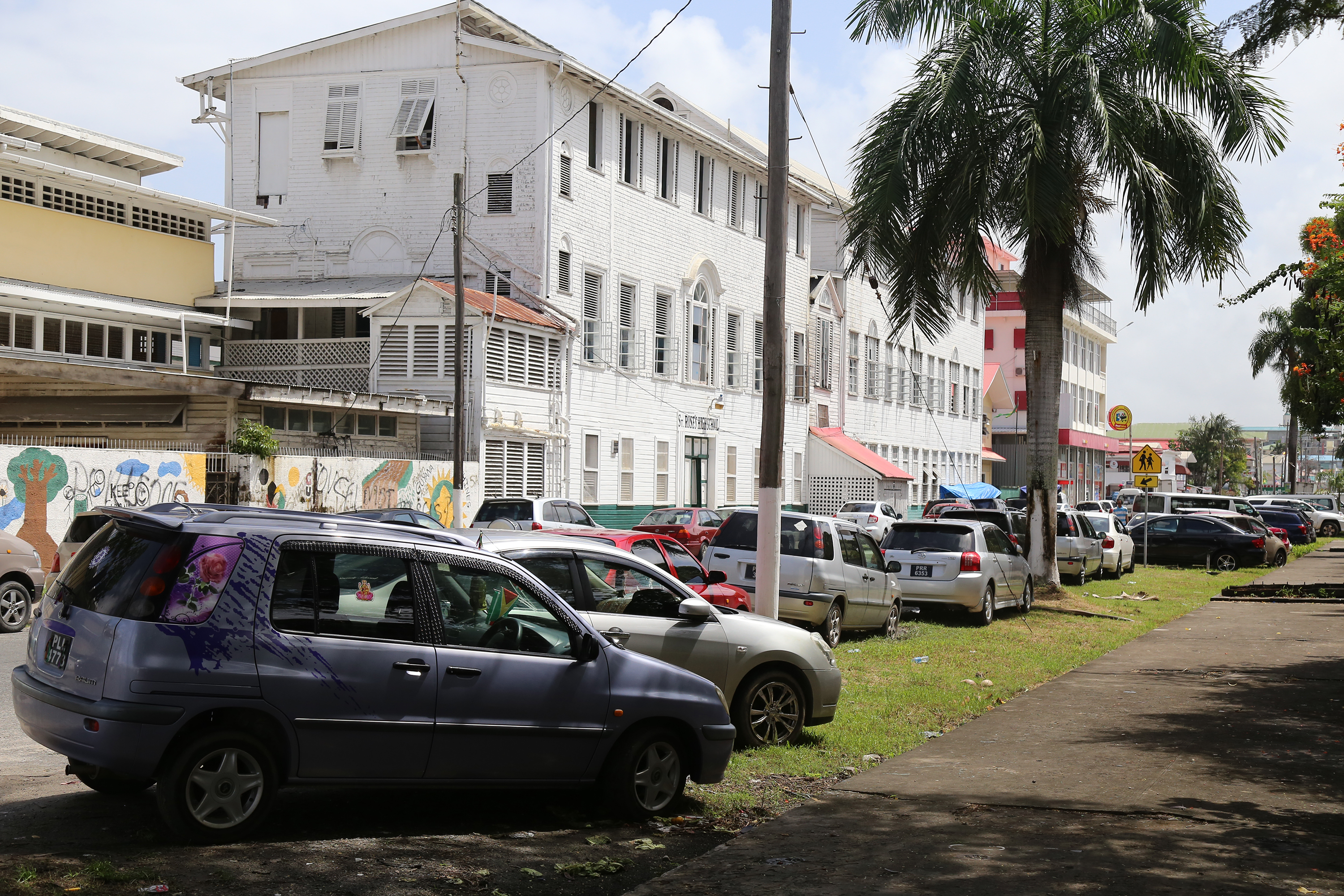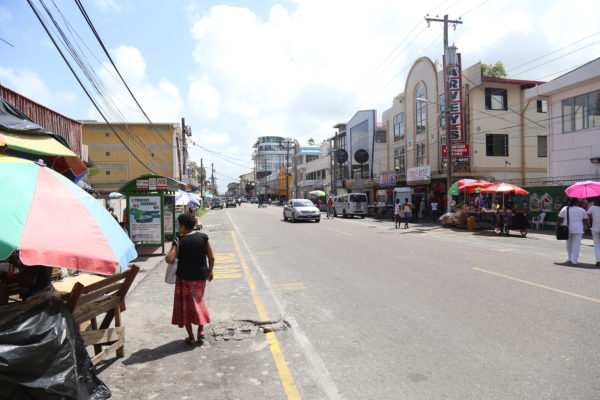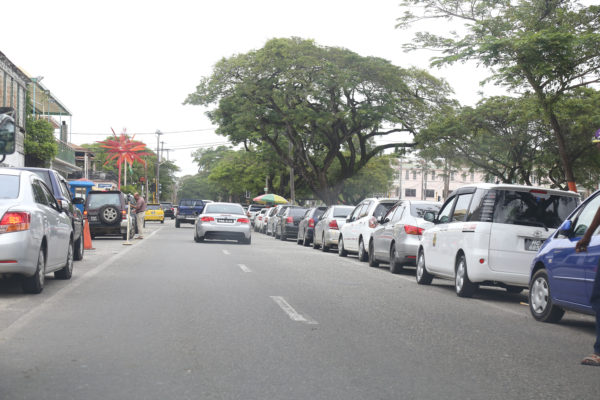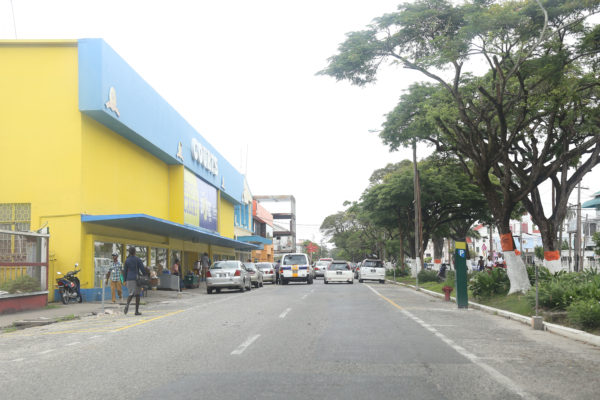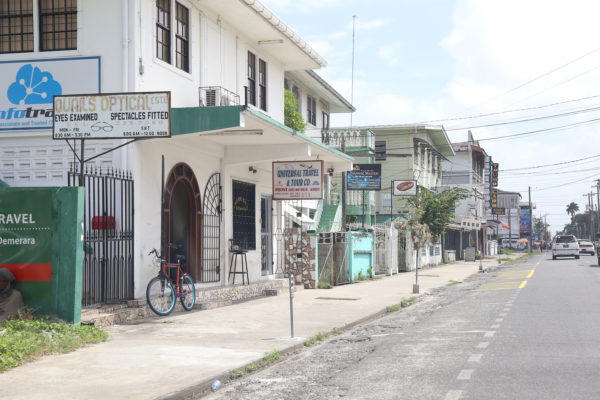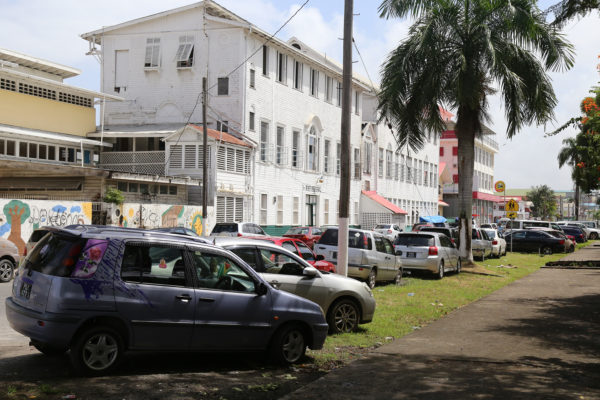With the start of the enforcement of penalties for parking violations, numerous parking spaces in Central Georgetown remained vacant yesterday.
Motorists have continued to avoid the city’s new paid parking system since its official implementation last Tuesday, leaving an abundance of vacant parking spaces.
The majority of those who did park their vehicles in Central Georgetown avoided the use of the parking meters by parking in areas outside of the designated zones, while very few opted to pay the stipulated fee of $50 for every 15 minutes. This resulted in sections of Church, Main and Water streets being lined with vehicles.
And of the few motorists who opted to pay to park, almost all had already exceeded their allotted time, but none were seen to have been outfitted with the yellow immobilisation boot.
A grace period, granted by Smart City Solutions (SCS) to allow citizens to adjust to the new metered parking in the capital without the enforcement of penalties for overstaying, came to an end last Saturday, according to SCS spokesman Kit Nascimento.
The grace period was expected to have expired yesterday.
Under the Georgetown Metered Parking by-laws, drivers face a charge of $8,000 to release any vehicle immobilised with the boot.
Additionally, the by-laws grants SCS the right to charge citizens a $12,000 towing fee; $7,000 impoundment fee and $7,000 storage fee for every elapsed period of 24 hours a vehicle is impounded.
The Mayor and City Council, through a letter penned by Town Clerk Royston King and published in yesterday’s edition of the Stabroek News, continues to encourage all motorists to use the metered parking system installed in a section of the central business district of Georgetown.
King, in the letter, contended that citizens should adapt to the new parking system as the revenue earned from the new system contributes to the financing of a raft of activities, including the construction and maintenance of roads and allied facilities in the nation’s capital.
“Metered parking allows citizens to participate in the way the network of roads in the city is financed, ordered and managed. It influences the fluidity of vehicular traffic, the progress, growth and development of the municipality,” King posited.
In an apparent comment on the public’s less than favourable response to the meters, King noted that the council is aware that citizens have gotten used to taking the collectively owned spaces of the city for granted and some feel no obligation to assist the council to manage these spaces. As a result, he stated that the city’s administration could not allow Georgetown to continue along its old path of “disorder and indiscipline,” if it wanted to make this capital glorious and comparable with the great cities of the world. “The city is part of the global village and consequently connected to the rest of the world, which is progressing in the area of technology. Our national capital must not be left behind. Therefore, the council urges all citizens to participate and share in this aspect of the city’s history and development,” the Town Clerk added.

